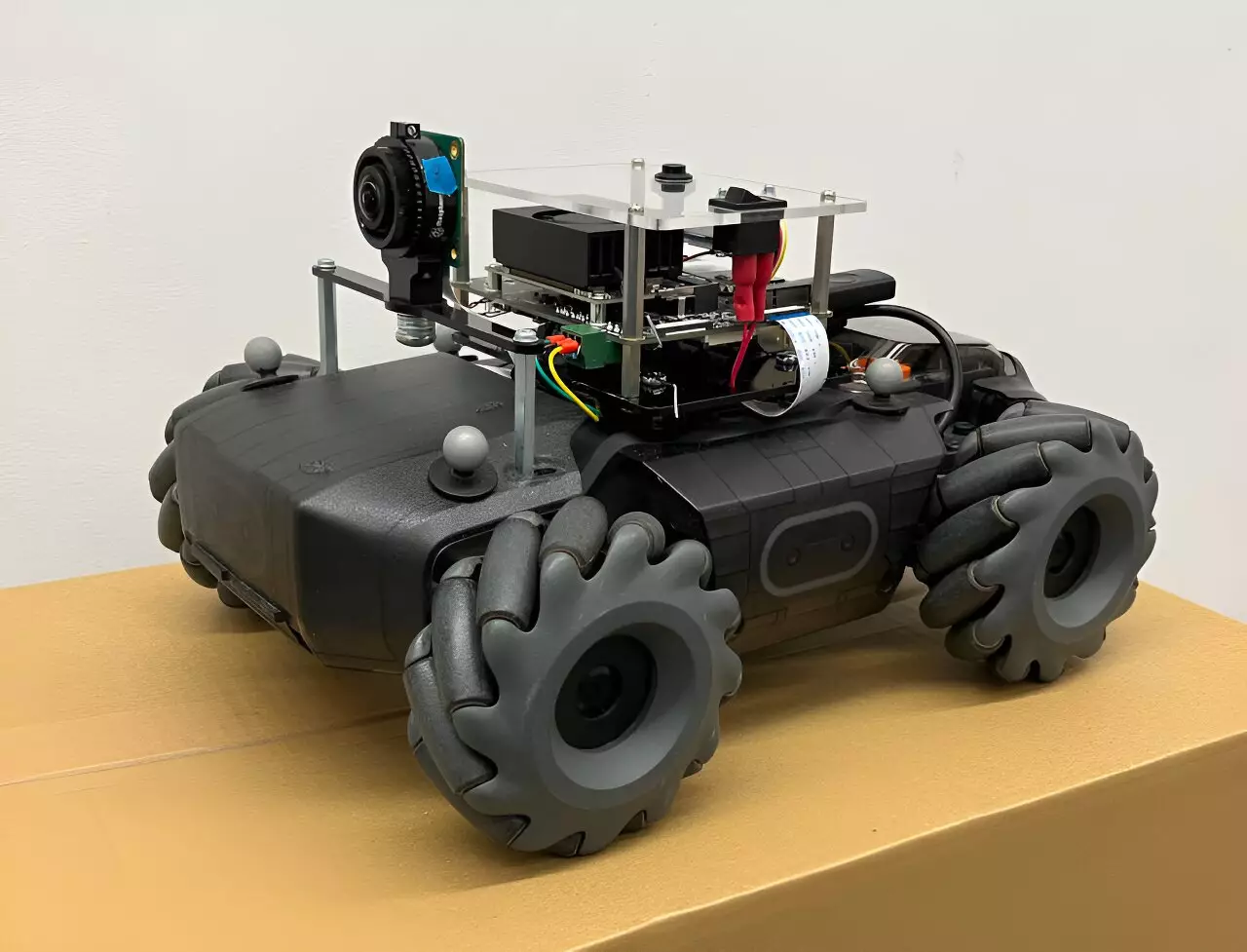The development of teams of robots has the potential to revolutionize the field of robotics by enabling them to tackle more complex and elaborate missions than individual robots. From covering long distances quickly to monitoring extensive geographical areas, the possibilities are endless. Platforms that offer a combination of reliable hardware and software for multi-robot applications can greatly advance research in this area, allowing for testing in real-world settings. Recently, researchers at the University of Cambridge introduced the Cambridge RoboMaster, a platform designed specifically for multi-robot research.
The Cambridge RoboMaster platform, detailed in a paper pre-published on arXiv, consists of a fleet of customized RoboMaster wheeled robots along with software for simulating and training the robots on specific tasks. Led by Principal Investigator Amanda Prorok, the research aims to develop solutions for collective intelligence in multi-robot and multi-agent systems, utilizing methods from machine learning, planning, and control. The platform builds on the DJI RoboMaster S1 robots, known for their agility and durability, which were enhanced by the researchers to meet their specific needs.
Throughout the development process, the team continuously iterated on and improved the capabilities of the Cambridge RoboMaster platform. By enriching the robots with more capable computers, sensors, and control software, they created a robust and versatile platform for multi-robot experiments in indoor environments. With a top speed of 4.5 m/s, the platform proved to be highly agile, effectively testing algorithms applicable in various scenarios such as warehouse automation and logistics.
One of the significant advantages of the Cambridge RoboMaster platform is the balance between robot size and capabilities. By overcoming the limitations of both smaller robots with limited computing power and larger, more expensive robots, the platform offers full on-board autonomy, peer-to-peer communication, and the ability to run multi-agent reinforcement learning policies directly from a simulation framework. Priced at around $700, the platform is cost-effective and accessible to researchers, making it an ideal tool for a wide range of research demonstrations and practical applications in multi-agent systems.
The agility and cost-effectiveness of the Cambridge RoboMaster robots make them easy to fabricate and test in academic and research settings. With the ability to navigate both indoor and outdoor environments on smooth terrains efficiently, the platform has already been tested in various scenarios, showcasing its power-efficiency and versatility. While not intended for direct use in real-world settings, the platform serves as a proxy and a valuable research tool for testing algorithms applicable in multi-agent navigation.
Looking ahead, the researchers have exciting plans to further enhance the Cambridge RoboMaster platform for a variety of projects. By focusing on improving on-board sensing, decentralized communication, and control, they aim to push the limits of multi-robot and multi-agent systems research. With the hardware, software, and simulation tools readily available on GitHub, research groups worldwide can start experimenting with the platform and test algorithms for various multi-robot applications, paving the way for advancements in automated transport logistics, environmental monitoring, and search and rescue missions.
The Cambridge RoboMaster platform stands as a versatile, reliable, and accessible testbed for multi-robot research, with the potential to drive significant progress in the field. By continuing to enhance and expand the platform’s capabilities, the researchers aim to push the boundaries of multi-robot and multi-agent systems research and contribute to the development of innovative solutions for collective intelligence in robotics.


Leave a Reply